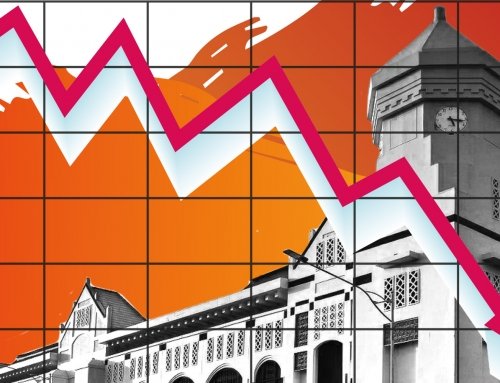Tax Briefing Series No. 5
LOKATARU FOUNDATION
TAXATION AND CLIMATE, CARBON TAX AND CARBON PRICING
- How are the latest developments in the G20 negotiations on climate and carbon tax arrangements?
Carbon tax became one of the priority agenda at the G20 meeting in Yogyakarta. Currently, there are at least 65 carbon policy initiatives in the world that have been implemented, including Indonesia.
OECD Secretary General Report 2022
On 9 February 2022, the OECD Secretary-General delivered a tax report to the G20 Finance Ministers and Central Bank Governors ahead of their 17-18 February meeting under the 2022 Indonesian Presidency. This report addresses the BEPS 2.0 project and work on explicit and implicit carbon pricing.
On carbon pricing, the report proposes the launch of an Inclusive Framework-like initiative to facilitate dialogue on implicit and explicit carbon pricing. The aim of this initiative is to bring jurisdictions together to develop a transparent measurement framework to support the comparison of key climate mitigation policies and their effects. The report notes the data the OECD currently produces on effective carbon rates and expresses the view that going forward further analysis will be needed in order to capture the full array of policy instruments adopted by countries to reduce emissions.
G20 communiqué
The communiqué issued at the conclusion of the G20 Finance Ministers and Central Bank Governors meeting on 17-18 February 2022. With respect to taxation and climate, the communiqué states:
We reiterate our commitment to tackle global challenges such as climate change and environmental protection including biodiversity loss. In the context of strengthening global efforts to reach the goals of the United Nations Framework Convention on Climate Change (UNFCCC) and the Paris Agreement, as well as implementing our COP26 commitments, our policy mix toward carbon neutrality and net zero should include a full range of fiscal, market and regulatory mechanisms including, if appropriate, the use of carbon pricing mechanisms and incentives, and phase out and rationalize, over the medium term, inefficient fossil fuel subsidies that encourage wasteful consumption and commit to achieve this objective, while providing targeted support to the poorest and most vulnerable, and in line with national circumstances.
- what is the current position and arrangement of the carbon tax by Indonesia?
In Indonesia, the carbon tax is regulated in Law Number 7 of 2021 concerning the Harmonization of Tax Regulations (HPP). As explained by the Minister of Finance Sri Mulyani, Indonesia’s adoption of a carbon tax is a concrete form of Indonesia’s commitment to reduce carbon emissions by 29 percent with its own efforts and 41 percent with international support by 2030,
In Indonesia, a carbon tax will begin to apply to coal-fired power plants (PLTU) at a rate of IDR 30 per kilogram of carbon dioxide equivalent (CO2e) or equivalent units. The carbon tax is imposed using a cap and trade mechanism. Indonesia is targeting the carbon tax to take effect on July 1, 2022. The decision was postponed from the initial plan for April 1, 2022, pending the readiness of the carbon trading mechanism.
The government issued Presidential Decree 98/2021 on the Economic Value of Carbon which regulates carbon pricing schemes (carbon trading and carbon offsets), result-based payments (RBP), levies on carbon such as carbon taxes and PNBP, as well as other mechanisms.
The government has set a carbon trading value of IDR 30,000 per tonne or around USD2. The price set by the government is considered very low when compared to the average world carbon trading price of USD10.
- What are the demands and recommendations of global civil society?
G20 countries are responsible for more than 80 percent of global carbon emissions and thus it is their responsibility to take action immediately.
A transparent measurement framework fo Carbon Tax
On carbon pricing, we support the proposal to launch of an Inclusive Framework-like initiative to facilitate dialogue on implicit and explicit carbon pricing. We propose to bring jurisdictions together to develop a transparent measurement framework to support the comparison of key climate mitigation policies and their effects. it would be a development of common methodologies for modeling carbon price.
Accross All Sectors and a Global Minimum Carbon Price
In response to different price of carbon across the world, We encourage to adopt a global minimum carbon price and apply across all sector, not just those covered by emissions trading. A minimum global carbon price would be more effective – and arguably fairer – than the border adjustment taxes proposed by the EU and elsewhere, which can be protectionist and reduce trade. A global minimum carbon tax would bring clarity to the expanding voluntary carbon offset market by providing a simple ‘floor’ for the value of carbon offsets. It could also be used by companies to evaluate investment decisions.







